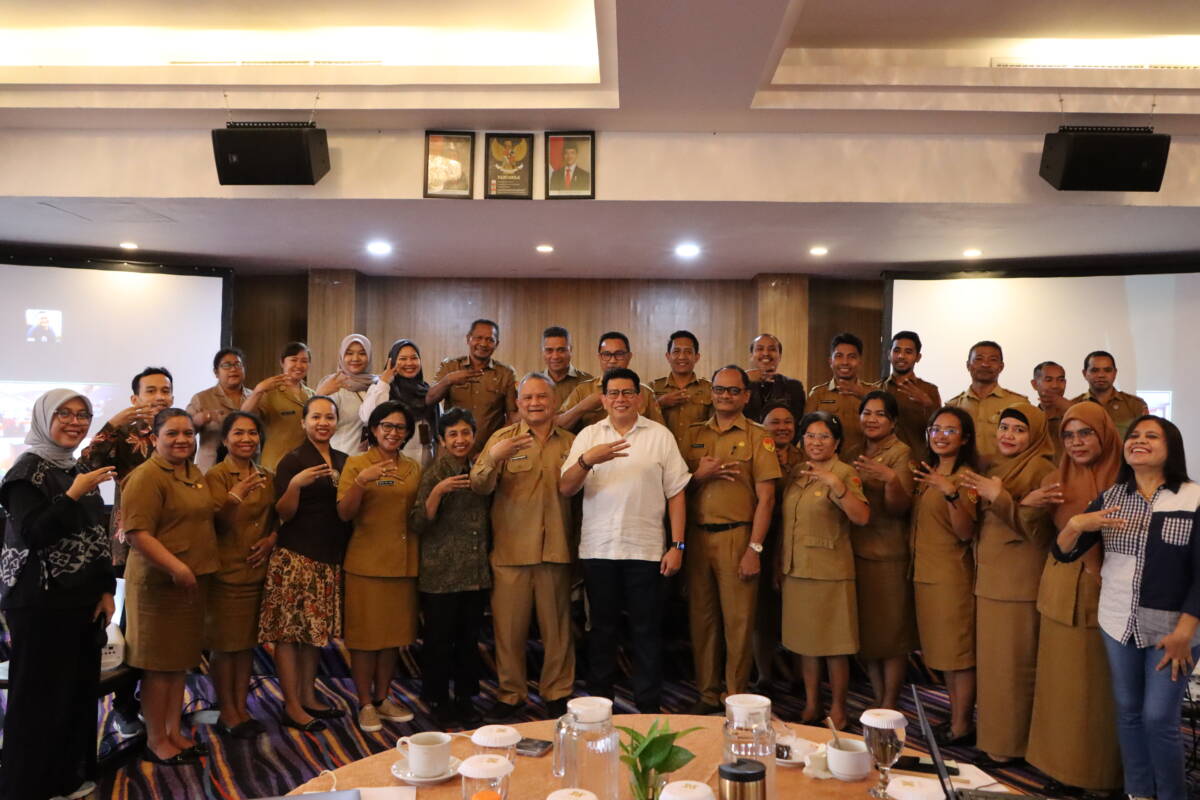Kupang, 6 May 2025 – East Nusa Tenggara (NTT), with its vast natural potential, is now moving towards a greener and more sustainable future. One of the biggest visions being developed by the government and various stakeholders is to achieve Net Zero Emissions (NZE) by 2050. This is not just an aspiration, but a concrete step to leverage the natural resources and renewable energy in the province to support inclusive and environmentally friendly development.
Fabby Tumiwa, Executive Director of the Institute for Essential Services Reform (IESR), explained that the plan to achieve NZE in NTT requires a clear and structured roadmap. For this reason, IESR is committed to supporting the NTT Provincial Government in designing this roadmap, involving various related parties. This roadmap will include various strategic steps, ranging from the development of renewable energy infrastructure, improving human resource capacity, to creating policies that support the growth of a green economy.
“In the coming years, this vision is expected to start being realized with concrete actions. Hard work and commitment from all parties are needed to achieve a greener, more sustainable, and inclusive NTT, and to become a role model for other provinces in Indonesia in achieving the NZE target,” said Fabby during the NTT NZE 2050 Vision Workshop on Tuesday (May 6, 2025).
Meanwhile, Alfonsus Theodorus, Head of the Regional Development Planning, Research, and Innovation Agency of the NTT Province, emphasized the importance of strategic steps to utilize renewable energy. The energy sector, which is currently one of the largest contributors to greenhouse gas emissions, must be addressed promptly so that Indonesia can meet the emission reduction targets set in the National Energy Policy and the National Energy General Plan.
“We hope that today’s workshop can serve as a starting point for cross-sectoral cooperation and collaboration, both with regional authorities in NTT and involving a wider range of stakeholders, to achieve NZE in NTT by 2050,” said Alfonsus.
Sherly S. Wila, Head of the Climate Change Mitigation Action & Energy Sector Analyst, NTT Climate Change Working Group, stated that the government, through the National Energy Policy and the National Energy General Plan (RUEN), has set ambitious targets, namely that renewable energy will contribute 23% by 2025 and 31% by 2050. To achieve this, it is important for all sectors, including the energy sector, to collaborate in achieving emission reductions.
“One of the steps currently being discussed in the NTT Regional Energy Supply Business Plan (RUED) 2025-2034 is increasing inclusivity by incorporating gender, disability, and social inclusion into energy policies. This is crucial considering the many marginalized groups, especially women, in accessing energy resources. By incorporating this inclusivity principle, it is expected that fairer opportunities to access renewable energy can be created,” said Sherly, emphasizing the importance of the Regional Energy General Plan (RUED) that integrates renewable energy policies and more inclusive energy access for the community. She also stressed that although NTT has great potential, the main challenge is to increase the renewable energy mix and expand energy access, especially for vulnerable groups such as women and people with disabilities.
“If we look at the factual situation in the community, the group most involved with energy is women. So we also see a gap in energy access for certain groups, even though energy is considered a basic need. However, the reality is that many vulnerable groups have yet to gain broad access to energy, such as women, people with disabilities, and other marginalized groups,” said Sherly.
According to Sherly, women and minority groups often have limited access to decision-making related to renewable energy projects. This happens due to their low participation in official meetings and decisions related to energy policies. Quoting the Gender Action Plan study by MENTARI, several gender issues that need attention in the development of small-scale renewable energy include the lack of inclusive project designs, low ability to pay for renewable energy tariffs, and the absence of clear guidelines on gender and inclusion in energy projects.
“However, if inclusive policies can be well implemented, women and other marginalized groups could gain greater benefits from the renewable energy sector. For example, greater access for women in entrepreneurship or the development of renewable energy-based businesses will open broader economic opportunities while reducing social inequalities,” emphasized Sherly.
On the other hand, Marlistya Citraningrum, Program Manager for Sustainable Energy Access, IESR, stated that the use of renewable energy not only impacts the energy sector but also other sectors that support the economy. Currently, the household sector dominates energy consumption in NTT, but there is a great opportunity to increase energy consumption in the commercial and industrial sectors. One of these is the agriculture and fisheries sector, which can be empowered using renewable energy, both to improve production quantity and quality, as well as create reliable superior products.
“For example, NTT has great potential to develop agricultural commodities such as coffee and cacao, as well as fisheries that can be more optimally utilized. Renewable energy will support these sectors by providing stable and affordable electricity, which in turn will enhance the region’s competitiveness in the global economy,” said Marlistya.
Jaya Wahono, President Director of Clean Power Indonesia, said that the development of renewable energy based on local potential and flexibility is key to accelerating the energy transition in Indonesia. Building power plants that can be adjusted to needs and can be scaled up in line with economic development is a solution that must be realized to support public welfare and create equitable economic growth.
“Without sufficient access to electricity, it is difficult to develop other vital economic sectors such as industry, education, health, and others. Therefore, the development of a fair and sustainable energy sector in Indonesia, especially in NTT, must be a top priority,” said Jaya.

